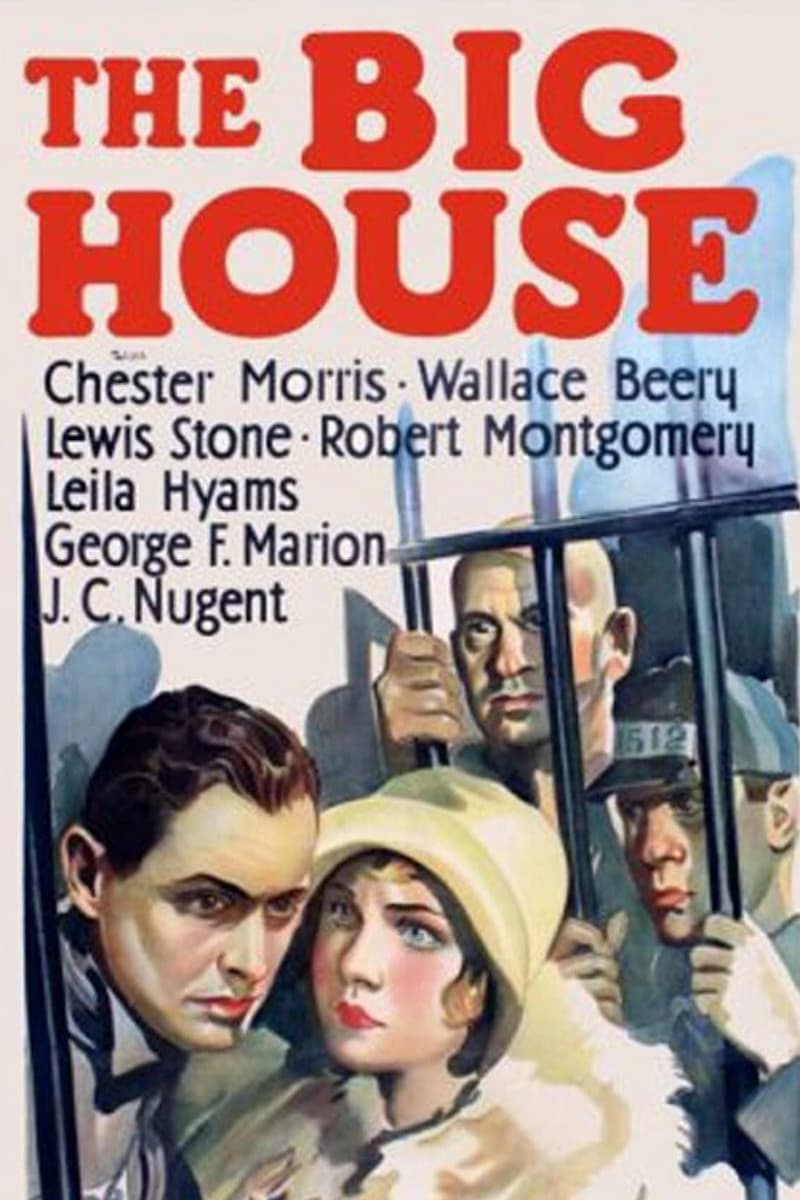The Big House (1930)

We're off to the slammer today for a 1930s taste of life behind bars. This could very well be called Orange is the New Black and White, but it's the much more sensibly-named The Big House.
Finding himself as the latest resident of the Big House is Kent (Robert Montgomery), imprisoned for 10 years for driving while drunk and killing somebody in the process. Quite how he managed that, I'm not sure. Didn't cars only go 5 miles per hour back then, and they had a man with a flag walking in front of them? Unless Kent actually ran over the flag man? Who knows? Anyway, the film seems to line Kent up to be our hero, but instead, he turns out to be a bit of a snake-like weasel.
Kent is plopped into a cell with Morgan (Chester Morris) and Butch (Wallace Beery). Morgan is tough but has a reasonable side. Butch is angry and shouty. At some point, Butch gets himself sent to solitary confinement for getting angry and shouty about the slop that passes for food in the prison canteen. Morgan isn't too far behind him after Kent plants Butch's knife in his bed. Ironically, Morgan was just about to get parole. The only way he's going to be able to get an early release from prison now is to escape, something he manages by swapping places with a dead person. Clever.
While out on his self-imposed day-release, Morgan plans to exact revenge by threatening Kent's sister. Naturally, as apparently even a prison movie needs a love story, Morgan ends up falling for her instead. His freedom doesn't last long - he gets captured and gets sent straight back to prison. He doesn't even get to pass "Go" and collect $200.
Back in jail and with his eyes on the outside, Morgan wants to go straight. Butch, on the other hand, is planning a jailbreak with his fellow inmates. True to his slimy form, Kent rats on them to a warden, with the promise of freedom in exchange for his snitching.
The final act builds up to a full-scale prison riot, complete with machine guns, rooftop drama, and a surprising amount of shouting. It's way more tense and exciting than most films of the era.
The performances are solid across the board, but it's Wallace Beery who steals every scene he grunts through. There is something more to him than just gruffness and anger. The cinematography is splendid, with wonderful set design and a grimness to the whole thing. There are also moments where staff complain about prison overcrowding and make the point that prisoners are humans too. And how future generations are going to pay a price if prisons don't get managed properly.
The Big House feels surprisingly modern in its tone and pacing. There is depth to the characters, some hard-hitting action and a cellblock brawl. It loses a few points for the mostly unnecessary and barely believable love plot around the middle, but, for the most part, it's gritty, gripping and way ahead of its time.